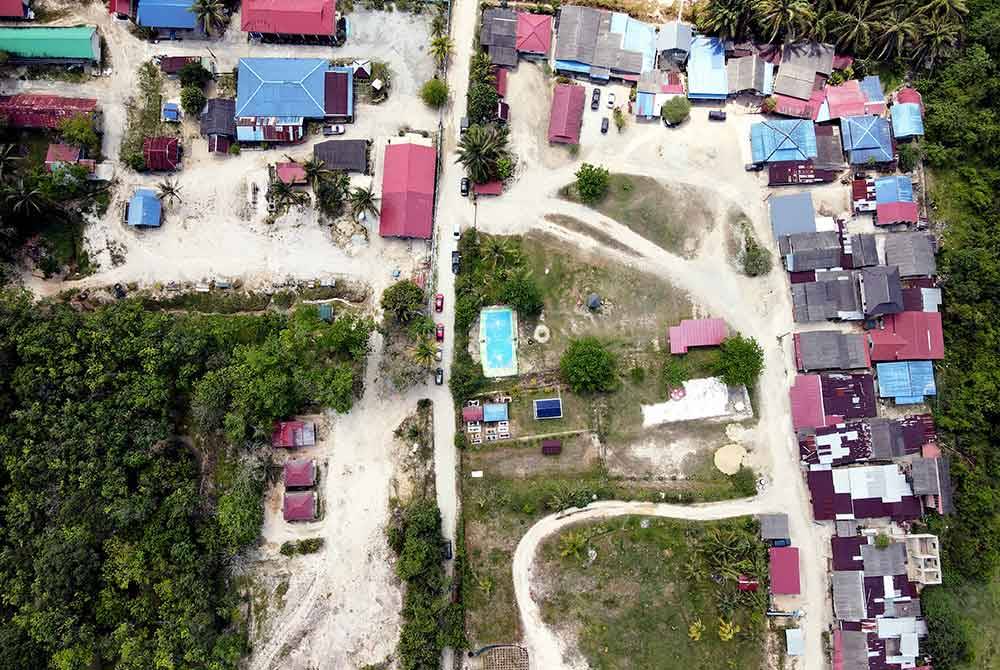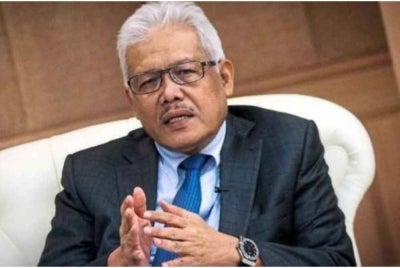Constant monitoring needed to prevent revival of deviant teachings - Expert
The government, authorities, and religious scholars urged to work together to find a holistic solution to eradicate deviant beliefs and teachings in the country.

KUALA TERENGGANU - Consistent monitoring of family members and former followers of leaders of deviant teachings in the country should be carried out by the authorities to ensure they return to the right path, says an expert.
Dean of the Faculty of Islamic Contemporary Studies at Universiti Sultan Zainal Abidin (UniSZA), Prof Dr Engku Ahmad Zaki Engku Alwi, said one of the actions that could be taken by relevant parties such as the Department of Islamic Development Malaysia (Jakim) and the Terengganu Religious Affairs Department (JHEAT) was to consistently conduct rehabilitation workshops for these groups to ensure they become aware and understand the true understanding of Islam.
"Just as JAKIM sends its religious officers to Orang Asli villages for religious outreach, the same should be done for the settlements and residences of family members and followers of deviant teachings. A religious officer should be regularly sent there to provide explanations about the true teachings of Islam so that their faith does not deviate anymore.
"It is acknowledged that those who have long been involved in deviant teachings find it very difficult to dispel their erroneous beliefs, and it may take a long time to rehabilitate them. Therefore, I suggest that consistent rehabilitation courses be provided until they truly understand the religion and subsequently practice Islam in their lives," he told Bernama.
Engku Ahmad Zaki also opined that those who were previously involved in deviant teachings should not live in the same area or associate with each other as it opened up opportunities for them to return to such misleading activities.
"They should not meet and associate with each other but should instead separate and mingle with the outside community so that they can follow and practice the true teachings of Islam. This will somewhat open their hearts to return to the right path," he said.
He made the remarks in response to allegations of efforts to revive the teachings of ‘Ayah Pin’, also known as Ariffin Muhamad, who previously shocked the country with his ‘Sky Kingdom’.
However, Terengganu Information, Dakwah and Syariah Empowerment Committee chairman Dr Muhammad Khalil Abdul Hadi during his visit to the homes of family members and relatives of Ayah Pin in Kampung Batu 13, Hulu Besut near Jertih on Monday, said that no suspicious activities or evidence indicating a resurgence of the deviant teachings had been observed.
This was also confirmed by Terengganu Police chief Datuk Mazli Mazlan, who participated in the visit, giving assurance that they will continue to monitor to ensure that such deviant teachings do not disturb public safety and order.
The Terengganu Islamic Religious and Malay Customs Council (MAIDAM) Fatwa Committee issued a fatwa in 1997 declaring Ayah Pin’s teachings as deviant under Section 25 of the Administration of Islamic Religious Affairs Enactment 1986.
Ayah Pin died on April 22, 2016, at the age of 74 at his home in Kampung Batu 13, Hulu Besut, due to old age.
However, the director of the Sultan Mahmud Islamic Centre, Universiti Malaysia Terengganu (UMT), Dr Riswadi Azmi, expressed concern that deviant teachings like those of Ayah Pin could resurface silently without the public's knowledge.
"What is worrying is that such deviant teachings are like a smoldering fire, there may be a longing or desire in the hearts of former followers to return to the teachings they previously practised. If this indeed happens, the situation will make it harder for their deviant beliefs to be ‘erased’ by any party," he said.
Therefore, Riswadi urged all parties, including the government, authorities, and religious scholars, to work together to find a holistic solution to eradicate deviant beliefs and teachings in the country.
"One of the things that can be done is to provide continuous education not only to family members and former followers but also to potential groups or those susceptible to deviant teachings, such as young people who are easily influenced by something new," he said.
Riswadi also believed that awareness among the general public should be raised, but not just by informing them of the characteristics of deviant teachings. Instead, they should play a role as the eyes and ears of the government in combating these "faith crimes" before they become widespread. - BERNAMA
Download Sinar Daily application.Click Here!














